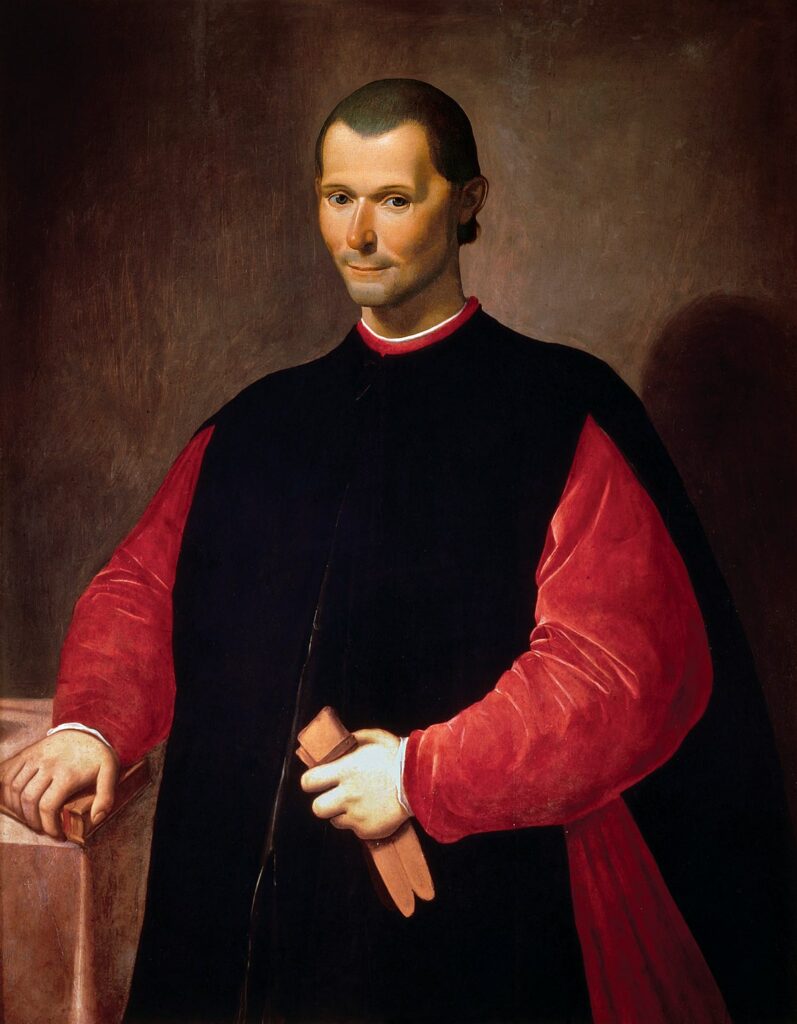FIND ITALIAN BOOKS

Niccolò Machiavelli (1469-1527) was an Italian diplomat, philosopher, and writer, best known for his political treatise, “The Prince” (Il Principe), which is often regarded as one of the most important works in political theory. Here are some key aspects of his life and contributions:
Early Life and Career
- Born: May 3, 1469, in Florence, Italy.
- Family Background: Machiavelli was born into a relatively poor branch of an influential Florentine family.
- Education: He received a typical Renaissance humanist education, studying Latin, classics, and history.
Political Career
- Diplomatic Roles: In 1498, Machiavelli became the Second Chancellor of the Republic of Florence. He was responsible for diplomatic missions and military affairs.
- Military Organization: Machiavelli reorganized the Florentine militia, advocating for a citizen army rather than reliance on mercenaries, which he saw as unreliable and dangerous.
Major Works
- The Prince (Il Principe) (1513):
- Content: This book offers advice to new princes and rulers on how to maintain power and control over their states.
- Themes: The treatise is known for its pragmatic, sometimes ruthless, approach to power politics, encapsulated in the idea that “the ends justify the means.”
- Impact: “The Prince” has been both praised and criticized for its apparent endorsement of manipulation and realpolitik.
- Discourses on Livy (Discorsi sopra la prima deca di Tito Livio) (1531):
- Content: This work contrasts with “The Prince” by focusing on republican governance, analyzing the Roman Republic’s structure and suggesting how its principles could be applied to contemporary Florence.
- Themes: It emphasizes the importance of civic virtue and the common good.
- The Art of War (Dell’arte della guerra) (1521):
- Content: This treatise on military strategy and tactics discusses the organization of armies, the importance of discipline, and the use of terrain.
- Themes: Machiavelli stresses the significance of military preparedness for the security and stability of the state.
Philosophical Contributions
- Political Realism: Machiavelli is often considered the father of modern political science due to his empirical approach to politics and his emphasis on realistic strategies over idealistic visions.
- Human Nature: He had a rather cynical view of human nature, suggesting that people are motivated primarily by self-interest and are likely to act immorally when given the chance.
- Separation of Ethics and Politics: Machiavelli is notable for separating politics from ethics, arguing that rulers must be willing to act immorally if necessary to maintain power and protect their states.
Later Life and Death
- Exile: After the Medici family returned to power in Florence in 1512, Machiavelli was dismissed from his position and briefly imprisoned. He then retired to his estate, where he wrote his most famous works.
- Death: Machiavelli died on June 21, 1527, in Florence.
Legacy
Machiavelli’s work has had a profound and lasting impact on political theory and practice. His ideas continue to be studied and debated, influencing both contemporary political thought and the practice of statecraft.
Bestselling Books by Niccolò Machiavelli
Last updated on July 26, 2024 4:12 pm






















